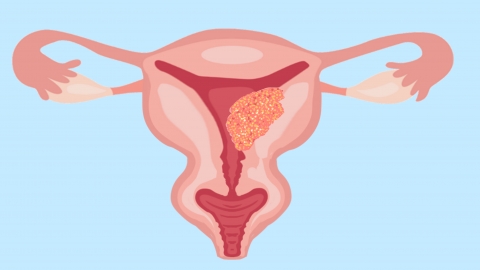How is endometrial tuberculosis treated?
Generally, endometrial tuberculosis may be related to factors such as low immunity, prolonged menstruation, pulmonary tuberculosis, tuberculous peritonitis, and renal tuberculosis. It can be treated or relieved with general treatment, drug therapy, and other methods depending on individual conditions. It is recommended to seek timely medical advice, identify the cause, and undergo symptomatic treatment under a doctor's guidance. Detailed analysis is as follows:

1. Low immunity: Long-term熬夜 (staying up late) and malnutrition may lead to decreased immunity, making the body more vulnerable to Mycobacterium tuberculosis infection and increasing the risk of developing endometrial tuberculosis. It is recommended to adjust lifestyle habits, ensure adequate sleep, and maintain a balanced diet.
2. Prolonged menstruation: Prolonged menstrual bleeding may lead to continuous blood flow. Inadequate hygiene practices in the external genital area may increase the risk of endometrial tuberculosis infection. It is recommended to maintain proper local hygiene and change underwear frequently.
3. Pulmonary tuberculosis: Caused by Mycobacterium tuberculosis, which can spread via the bloodstream to the endometrium, causing endometrial tuberculosis. Symptoms such as coughing and expectoration may be present. Patients may take medications such as isoniazid tablets, rifampicin capsules, and ethambutol hydrochloride tablets as prescribed by a doctor.
4. Tuberculous peritonitis: A chronic, diffuse inflammation of the peritoneum caused by Mycobacterium tuberculosis, which may directly involve the endometrium, leading to endometrial tuberculosis, accompanied by abdominal pain and distension. Patients may take medications such as pyrazinamide tablets, isoniazid injection, and sodium para-aminosalicylate enteric-coated tablets under medical guidance.
5. Renal tuberculosis: When the kidneys are infected by Mycobacterium tuberculosis, the bacteria may spread through bodily fluids to affect the female reproductive organs, causing endometrial tuberculosis, accompanied by symptoms such as frequent and urgent urination. Patients may use medications such as streptomycin injection, rifapentine capsules, and protionamide enteric-coated tablets as directed by a physician.
Patients should ensure adequate rest, enhance nutrition, and engage in appropriate physical exercise to strengthen their constitution and aid in recovery from the condition.







